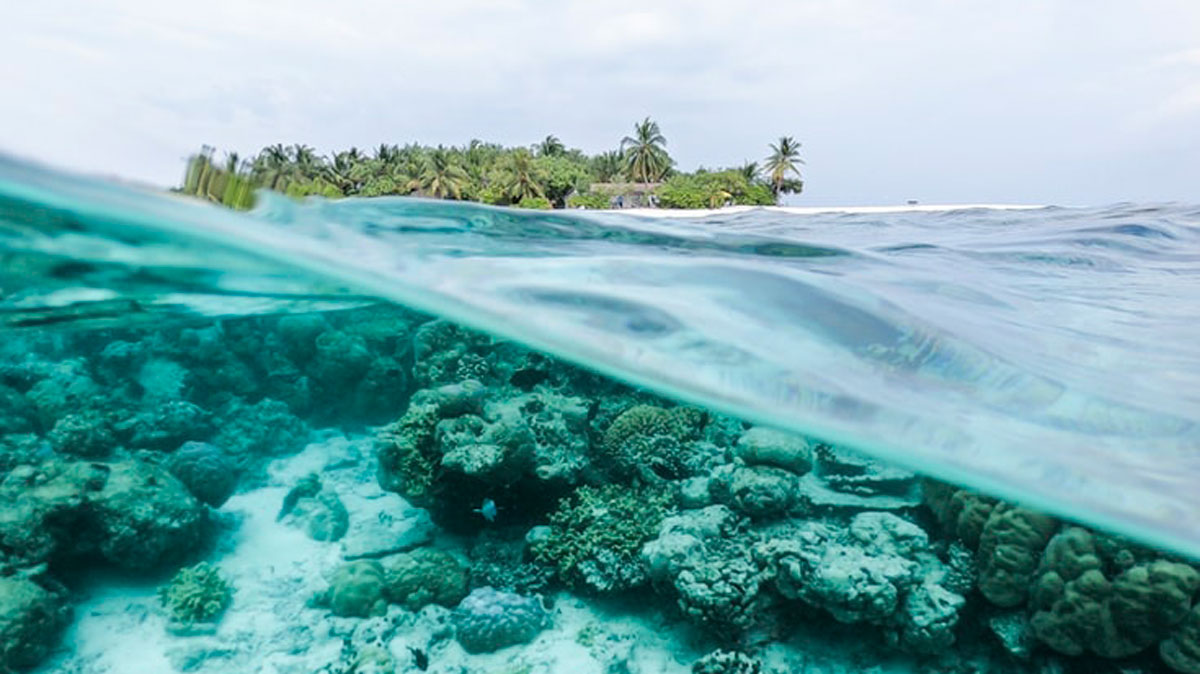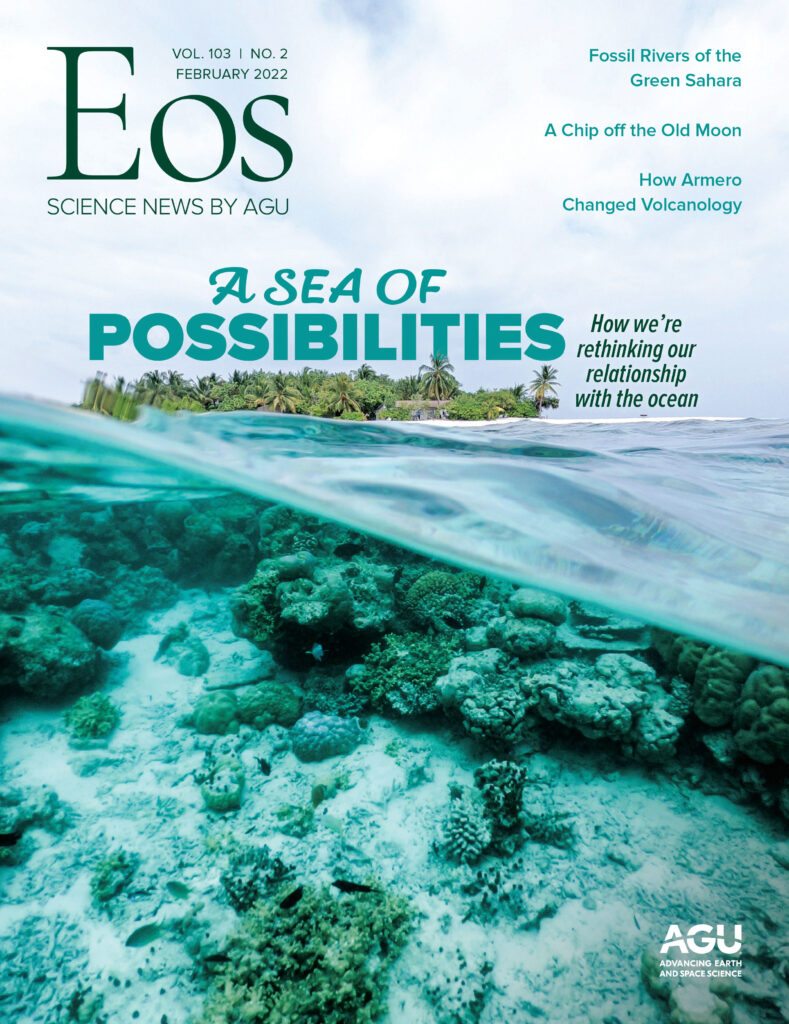In January 2021, the United Nations launched the Decade of Ocean Science for Sustainable Development. The initiative encourages partner nations to fund scientific research that “achieves the ocean we want by 2030.” Calls have gone out, proposals are being pitched, and here at Eos we very much look forward to seeing this global coalition work toward the seven goals the United Nations has outlined.
Inspired by this movement, Eos dedicates this issue—and one issue each year through 2030—to the study of the ocean and our relationship to it. We start our decade-long watch with a ship that’s tied to a 402-year-old event. The Mayflower Autonomous Ship, or MAS, is the futuristic namesake of the original Mayflower, which set sail from Plymouth, England, in 1620. MAS will retrace that voyage later this year, guided by an artificial intelligence (AI) captain, as a technology showcase of how we might study the expansive ocean without having to send humans sailing over every inch of it.
Next, we report on a bright idea that can’t seem to get off the ground, or perhaps I should say, up from the deep sea. Ocean thermal energy conversion is a fairly simple concept that could help island nations find independence from fossil fuels, but it’s suffering from the “innovation valley of death.” Read more about the potential of this ocean-based power source and, if you have a few billion lying around, perhaps give someone on the island of Kumejima a call?
We end our feature reporting with an ominously ticking clock. The deep-sea mining industry is impatiently waiting for international regulators to take the leash off so they can begin collection of the rare earth elements waiting on the floor of the Clarion-Clipperton Zone in the Pacific. We report on the stakes that are all going to become clear in less than 2 years—for the ocean ecosystems, for the investors in deep-sea mining, and for the renewable energy tech that currently depends on these resources.
I also urge you to take a look at Jeremy Bassis’s excellent Opinion, “Quit Worrying About Uncertainty in Sea Level Projections.” Bassis offers an eloquent explainer on how climate scientists can refocus the way they communicate their research to be of better use to policymakers. Thanks once again to our friend Russ Colson, who brings us a sea-themed crossword puzzle to celebrate the issue. See you next month!
—Heather Goss (@heathermg), Editor in Chief, Eos


